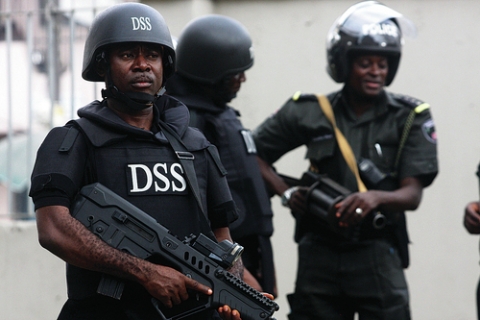The Director-General, Department of State Service (DSS), Yusuf Bichi, says the service has removed a journalist, Lanre Arogundade, from its watch list in which his name featured for 38 years.
Bichi said this when a delegation from the Nigerian chapter of the International Press Institute (IPI Nigeria) visited him in Abuja.
The Secretary of IPI Nigeria, Ahmed Shekarau, in a statement on Thursday, said the visit was part of the organisation’s ongoing high-level engagements on the safety of journalists and press freedom in Nigeria.
Shekarau said that Arogundade was on Feb. 10 intercepted and detained by officers of the DSS on his arrival at the Murtala Muhammed International Airport in Lagos, from Banjul, Gambia.
He said the Director of the Lagos-based International Press Centre (IPC) went to train journalists on conflict reporting.
Speaking on the circumstances leading to the interception of the journalist on his arrival in Lagos, Bichi said the Service acted based on a decades-long watchlist, which demanded that Arogundade should be quizzed whenever he returned from a foreign country.
He said the journalist was put on the list during his days as the President of the National Association of Nigerian Students (NANS) between 1984 and 1985.
The DSS boss said after Arogundade was initially removed, there arose another case of mistaken identity triggered by a request by the National Agency for the Prohibition of Trafficking in Persons (NAPTIP).
According to him, the service doesn’t intercept people willfully at airports, we do so based on requests from other government agencies who may have issues with the persons affected.
Bichi emphasised the need for close collaboration between the media and the service.
He said it was necessary to address many of the ‘misconceptions’, because their mission was peace, adding that the service was too friendly to be antagonistic toward the media.
Earlier, the President of IPI Nigeria, Musikilu Mojeed, lamented the rising incidents of violation of the rights of journalists while performing their constitutional duties.
Mojeed said that journalists had the duty of upholding the people’s right to know and holding governments, individuals and corporations accountable.
Citing the 2021 World Press Freedom Index by Reporters Without Borders, he lamented the ranking of Nigeria as one of West Africa’s most dangerous and difficult countries for journalists.
According to him, journalists are often spied on, attacked, arbitrarily arrested or even killed.
He reiterated the commitment of IPI Nigeria in ensuring credible and independent journalism, media freedom, freedom of speech and the free flow of news and information.
According to him, journalists will always stand firm and resist any measure or action that threatens these matters and principles for which we stand.
He said all oppressive and repressive policies and actions directed at the media must be resisted so as not to allow authoritarianism, poor governance and corruption to thrive in Nigeria.
“As we all know, Section 22 of the Nigerian Constitution is clear in compelling “the press, radio, television and other agencies of the mass media to, at all time, be free to uphold the responsibility and accountability of the government to the people,” he said.
He appealed to the DSS DG to educate and prevail on officers and men of the Service all over the country to desist from harassment of journalists.
He also urged them not to allow themselves to be used by politicians, public office holders and other individuals who happen to be on the wrong side of media reporting.
According to him, such aggrieved individuals should be advised to seek redress in court instead of coming to the DSS.
The president informed his host that IPI Nigeria would henceforth demand accountability in any case of harassment of journalists in the country.
“For a start, we are opening a black book to document all security personnel and other individuals involved in the harassment of journalists in Nigeria.
“The records so gathered will be shared periodically with embassies, and all relevant international and human rights groups across the world.
“We will use the records for intense advocacy with a view to getting perpetrators to be held accountable one way or another,” he said.

